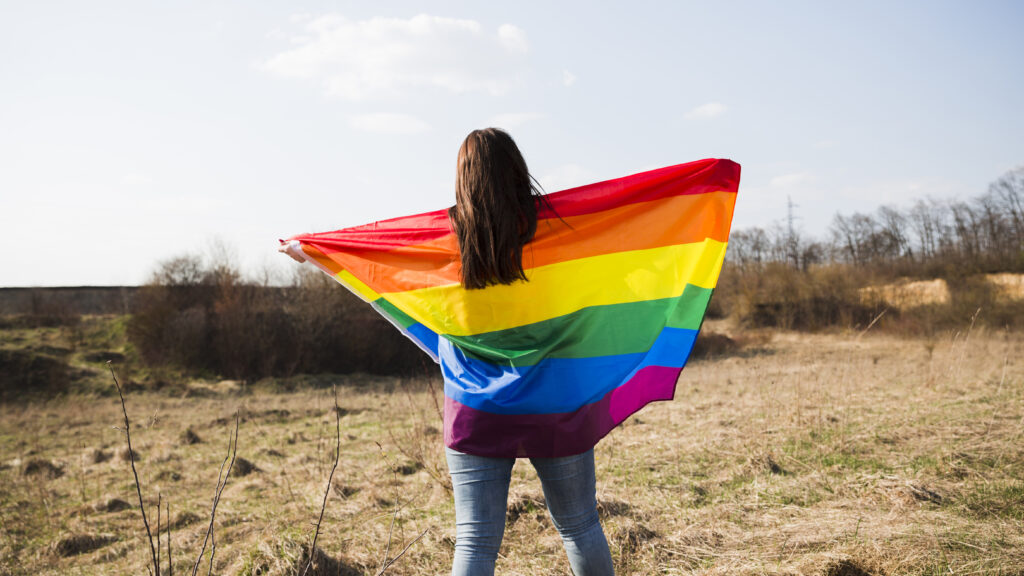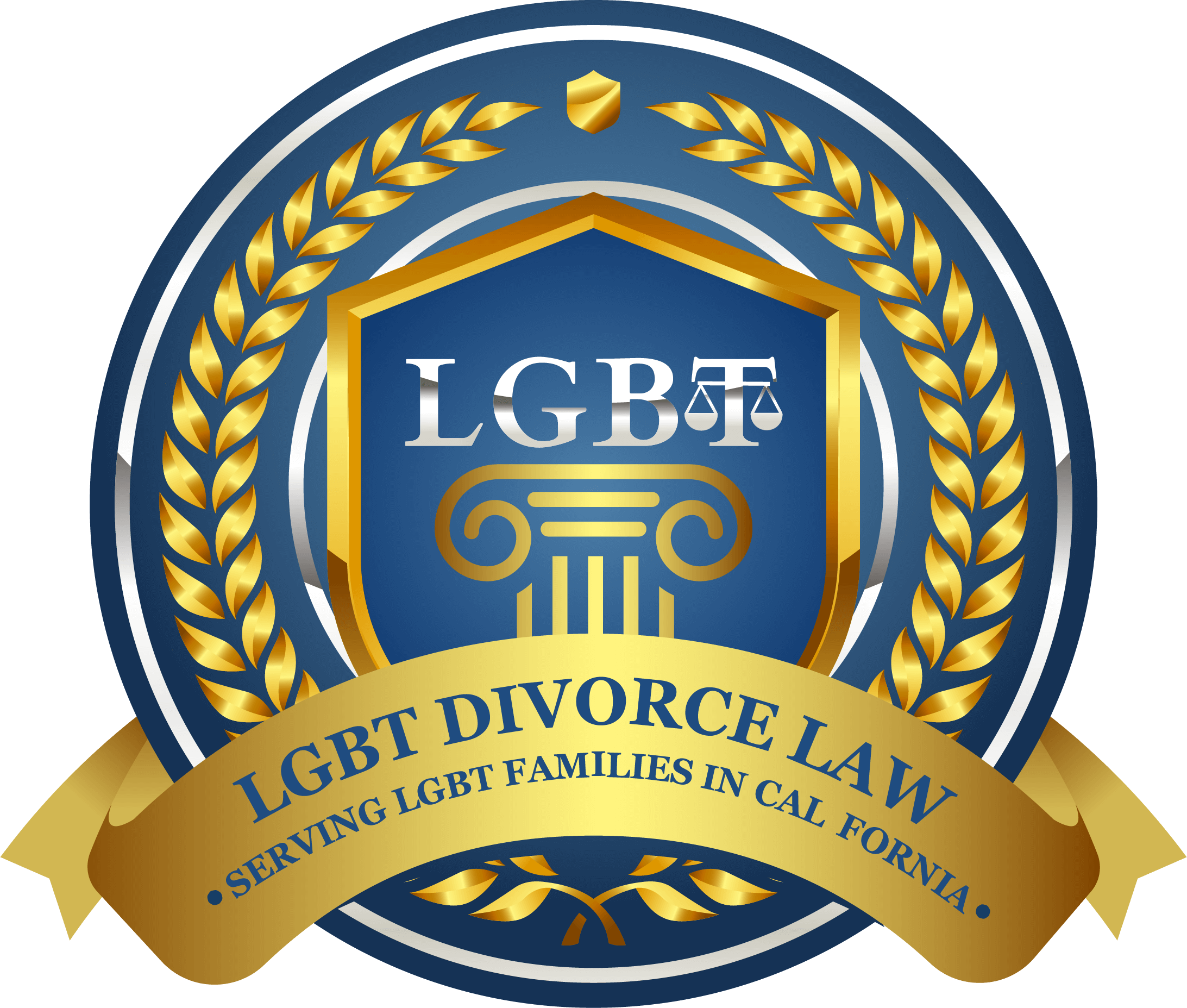Divorce has its own distinct set of emotional complications, particularly for the LGBTQ community. This time might seem like traveling through a labyrinth of emotions, ranging from relief and optimism for the future to despair and rage. Understanding the complexity of these feelings is essential since they touch on aspects of one’s own identity, social expectations, and the subtleties of close relationships. Setting your emotional well-being as a top priority is not just wise, but necessary. You can go on with resilience and clarity because it establishes the groundwork for healing and development. Remember that this path is highly personal and full of opportunity for self-discovery and rejuvenation as we dive into tactics and advice for preserving your emotional well-being.
Acknowledging the Emotional Rollercoaster
Divorce may send you into a maelstrom of feelings, all of which are real and important in their own right. The emotions experienced on this very personal trip range from emancipation to loneliness, calm to anguish, and all the emotions in between. Realizing that there is no “right” way to feel is essential. Your emotional experience is as distinct as your fingerprint, greatly impacted by the subtleties of your connection, your sense of self, and the expectations of society. Give yourself permission to move freely over this range without passing judgment. Accept your feelings as they arise, understanding that they’re all a necessary component of the complex process of getting well and moving on. Recall that having strong emotions is normal, as is it being appropriate for those emotions to fluctuate throughout the day.
The Power of Support Networks
Your greatest ally throughout an LGBTQ divorce might be the strength inside your support system. Friends, relatives, and LGBTQ community resources may provide unmatched support and understanding. A support system may provide a secure environment where you can communicate your emotions, share your stories, and get guidance and understanding. If you’re not sure where to begin, think about contacting LGBTQ organizations in your community, participating in online discussion boards, or getting advice from an LGBTQ family lawyer who is familiar with the specifics of your case.
These professions often have access to tools that are specifically designed to serve the LGBTQ population. Even while creating your support system might seem overwhelming, even modest actions like joining a support group or just speaking with a reliable friend can have a big impact. Recall that the quality of assistance matters more than its quantity. Be in the company of individuals who value your path and provide you with the sort of support you need. You’ll discover that you’re not alone, even on the worst days, if you do this.
Professional Help: When and How to Seek It
Getting expert assistance from therapists or counselors that specialize in LGBTQ topics might be crucial to your LGBT divorce process. These experts give more than just a sympathetic ear; they also provide specialized advice, coping mechanisms, and a profound understanding of the particular difficulties that the LGBTQ community faces throughout these changes. Start your search for the ideal practitioner by looking into therapists who specialize in LGBTQ issues and, if at all feasible, seek recommendations from the LGBTQ community. Many include their specializations and methods in their professional directories’ profiles. Never be afraid to get in touch, find out about their LGBTQ divorce experience, and see if their style suits your requirements. Recall that the therapeutic alliance is essential; your emotional health depends on feeling heard, understood, and supported by your therapist.
Self-Care Strategies
A holistic approach to self-care is necessary while navigating an LGBTQ divorce, ensuring that you’re supporting your mental and physical well-being. Begin with the fundamentals: make sure you’re getting enough sleep, eating healthfully, and exercising. Engaging in physical activity, whether it yoga, jogging, or any other kind of exercise you love, may greatly improve your mood and lower your stress levels.
Learning something new or pursuing enjoyable hobbies may also be quite soothing. These pursuits may provide a feeling of accomplishment and personal development in addition to being a diversion. Think of artistic endeavors like writing, painting, or performing music; these may be effective means of expressing feelings that may be difficult to put into words.
Deep breathing exercises and meditation are examples of mindfulness techniques that may help you focus your thoughts and lessen worry. If these are new to you, apps and internet resources may help you get started. Recall that mindfulness is not about reaching perfection; rather, it is about being loving and present to oneself right now.
The discipline of patience and self-compassion is equally vital. Recognize that getting well takes time and that having good and bad days is normal. Recognize that growth is not linear and treat yourself with kindness. Don’t hurry your recovery, surround yourself with positive mantras, and give yourself time to relax. Recall that looking after your emotional needs is not selfish; rather, it’s essential to overcoming the difficulties of an LGBTQ divorce and coming out stronger on the other side.
Navigating Legal and Financial Stress
Although handling the stress caused by the legal and financial sides of a divorce is essential for your general wellbeing, it may sometimes seem overwhelming. First and foremost, it is imperative that you engage with an LGBT family law lawyer that appreciates and supports your emotional journey in addition to being knowledgeable about the nuances of LGBT divorces. These lawyers are adept at navigating the court system and providing guidance based on your particular circumstances, which may greatly lessen your stress.
Get a clear picture of your existing condition early on in the process by organizing your financial paperwork. This group can ease your tension and get you ready for talks about financial settlements. To make sure your financial wellbeing is safeguarded both before and after the divorce, think about speaking with a financial adviser experienced in LGBT divorce matters.
The trick is to communicate. Maintain open and transparent channels of communication with your financial adviser and attorney to make sure you are aware and participating at every stage. This involvement may aid in demystifying and reducing the daunting nature of the financial and legal procedures.
Recall that you are free to take time off from legal conversations to attend to your mental health. Establish limits on how you participate in the divorce process and give yourself time to unwind and regroup. The psychological health of yourself is just as significant as the financial and legal consequences of your divorce.
The Role of Positive Distractions
Taking up new interests or rekindling old ones might provide solace among the emotional turbulence that follows an LGBTQ divorce. In addition to providing a momentary reprieve, these constructive diversionary activities also provide people a voice, a feeling of normality, and chances for happiness and contentment during trying times. Engaging in novel physical activities, pursuing creative pursuits, or reading immersing yourself in fantasy novels are all excellent ways to support your emotional healing. They strengthen your feeling of self and independence by serving as a reminder of your hobbies and interests outside of your relationship. Additionally, engaging in hobbies and activities may help you meet others who share your interests, broadening your circle of support and opening your eyes to fresh viewpoints and experiences. Accept these constructive diversions as essential components of restoring and sustaining your emotional well-being rather than as means of escape.
Maintaining Healthy Communication
Maintaining respectful and healthy communication with an ex-partner during and after an LGBTQ divorce is crucial, especially if joint decisions or child custody considerations are involved. Start by establishing clear boundaries that respect both parties’ emotional well-being. Consider involving a mediator or a family law attorney if direct communication becomes challenging. When discussing necessary topics, focus on being concise, clear, and neutral in tone. Avoid rehashing past conflicts or using communication as an opportunity to express grievances unrelated to the matter at hand. If emotions run high, take a step back and allow time for cooling off before continuing the conversation. Remember, the goal is to foster a constructive dialogue that prioritizes mutual respect and the well-being of any children involved, possibly requiring the guidance of a skilled child custody lawyer to navigate complex discussions.
Looking Forward: Embracing Change and Growth
After an LGBTQ divorce, accepting change may lead to personal development and a more promising future. While it’s normal to feel sad when a relationship ends, it’s also important to acknowledge the chances for personal growth and fresh starts that lie ahead. Encourage yourself to take stock of your accomplishments, knowledge gained, and personal development along this trip. Whether your objectives are related to new interests, personal growth, or job ambitions, make sure they are exciting and true to who you are. Imagine yourself living a resilient, happy, and fulfilled life in the future. Accept the notion that, despite its difficulties, change may result in profound personal development and a clearer understanding of your needs and goals. Remember that progress is an ongoing process and acknowledge the little triumphs you have along the road. Keep an open mind, look for inspiration, and surround yourself with good people. Your life after divorce is a blank canvas just waiting for you to fill it with happiness and prosperity.
Resources and Further Reading
There is no shortage of options for anyone in need of extra help or knowledge. LGBTQ support groups provide a secure area for people to share stories and guidance while also offering a community of empathy and understanding. Counseling programs may provide individualized advice and coping mechanisms, particularly those that specialize on LGBTQ topics. A plethora of books and articles have also been written on divorce and coping, providing helpful guidance and insights for getting through this difficult period. Directories of LGBTQ-friendly professions are among the many tools and instructional materials that websites like The Trevor Project and GLAAD provide to the LGBTQ community. Recall that asking for assistance is a show of strength and the first step on the road to recovery and development.













